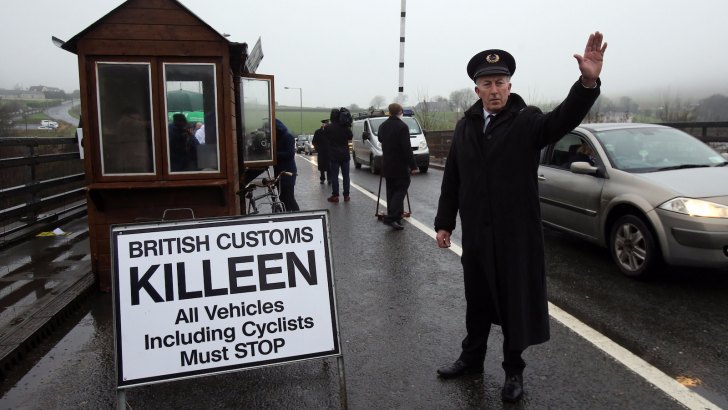The Border: The legacy of a century of Anglo-Irish politics
by Diarmaid Ferriter (Profile Books, €15.99 / £12.99)
Felix M. Larkin
On the very first page of this book, Prof. Ferriter speaks of the Border being “imposed” on the island of Ireland – by implication, against the will of the people of the island.
This reflects what successive Dublin governments had claimed for over 75 years, until the Good Friday agreement of 1998. While the Border was indeed the creation of an act of the Westminster parliament – the Government of Ireland Act 1920 – it was nevertheless a compromise agreed to and accepted by most parties on the island of Ireland in order to resolve the conflicting aspirations of the nationalist majority population and the unionist minority who were overwhelmingly located in the province of Ulster.
Redmond and Carson had both accepted partition in principle in 1914 and again in 1916, and so did Sinn Féin in the Anglo-Irish Treaty of 1921. Even those opposed to the Treaty did not make an issue of partition – but based their rejection of the Treaty instead on such matters as the Oath of Allegiance and the primacy of the Crown in the new constitutional arrangements.
Few deputies referred to partition in the Dáil debates on the Treaty. Most people expected that it would be temporary and that the logic of geography would cause it to wither away – but the logic of sectarianism was stronger.
Anomalies
The Border inevitably caused anomalies and hampered everyday life, especially in the regions around the Border. Also, the Protestant minority left behind in the new independent Irish state and the more substantial Catholic minority stranded on the other side of the Border undoubtedly suffered discrimination as a result of being cut off from the bulk of their respective communities.
All this was deeply tragic, but the likely alternative to the Border was – as Prof. Ferriter concedes –sectarian civil war.
While nationalists on both sides of the Border paid lip-service to re-unification, nobody had a better – or more realistic – solution to the problem of conflicting nationalist/unionist aspirations. Prof. Ferriter is at his best in this book in exposing the hollowness of much of the anti-partitionist rhetoric.
For independent Ireland, jettisoning the six counties of Northern Ireland liberated the new state from the corrosive effects of what Professor George O’Brien called the “northern disease” which would otherwise have condemned it to unimaginable strife.
O’Brien is quoted as arguing in 1936 that “it would be most regrettable if the sectarian dividing lines between the parties in the North were to spread to the South, and it is hard to see how the infection could be prevented from spreading if the border barrier were destroyed.
At the present, sectarianism is safely confined in its Ulster quarantine.” Prof. Ferriter dismisses this comment as a “self-satisfied example of the partitionist mindset in the South”, but it seems to me a fair observation and one to which advocates of re-unification should have regard.
Of course, the Northern Ireland state was – and is – a “failed political entity”, to quote Charles J. Haughey. Its failure, however, is a failure of governance within Northern Ireland – not a necessary consequence of the Border.
With wiser, more generous political leadership on both sides in the North, things might have been better – and the disasters of recent years avoided. Direct rule from Westminster would probably have been preferable to the Stormont regime, but in 1920 the British parliament was so thoroughly sick of the Irish question dominating its agenda that it wanted rid of any day-to-day responsibility for Irish affairs, North or South.
Today, the Irish question has once again come to the fore at Westminster in the context of the Brexit negotiations. In this book, Prof. Ferriter has made a useful contribution to our understanding of the historical background to the issues that arise in any debate on the future of the Border in the post-Brexit dispensation – but he fails to recognise that the Irish Border was, and probably still is, a necessary evil.


 Niall Carson/PA Archive/PA Images
Niall Carson/PA Archive/PA Images 